Jumia’s foray into advertising and logistics
Hi Quartz Africa readers,
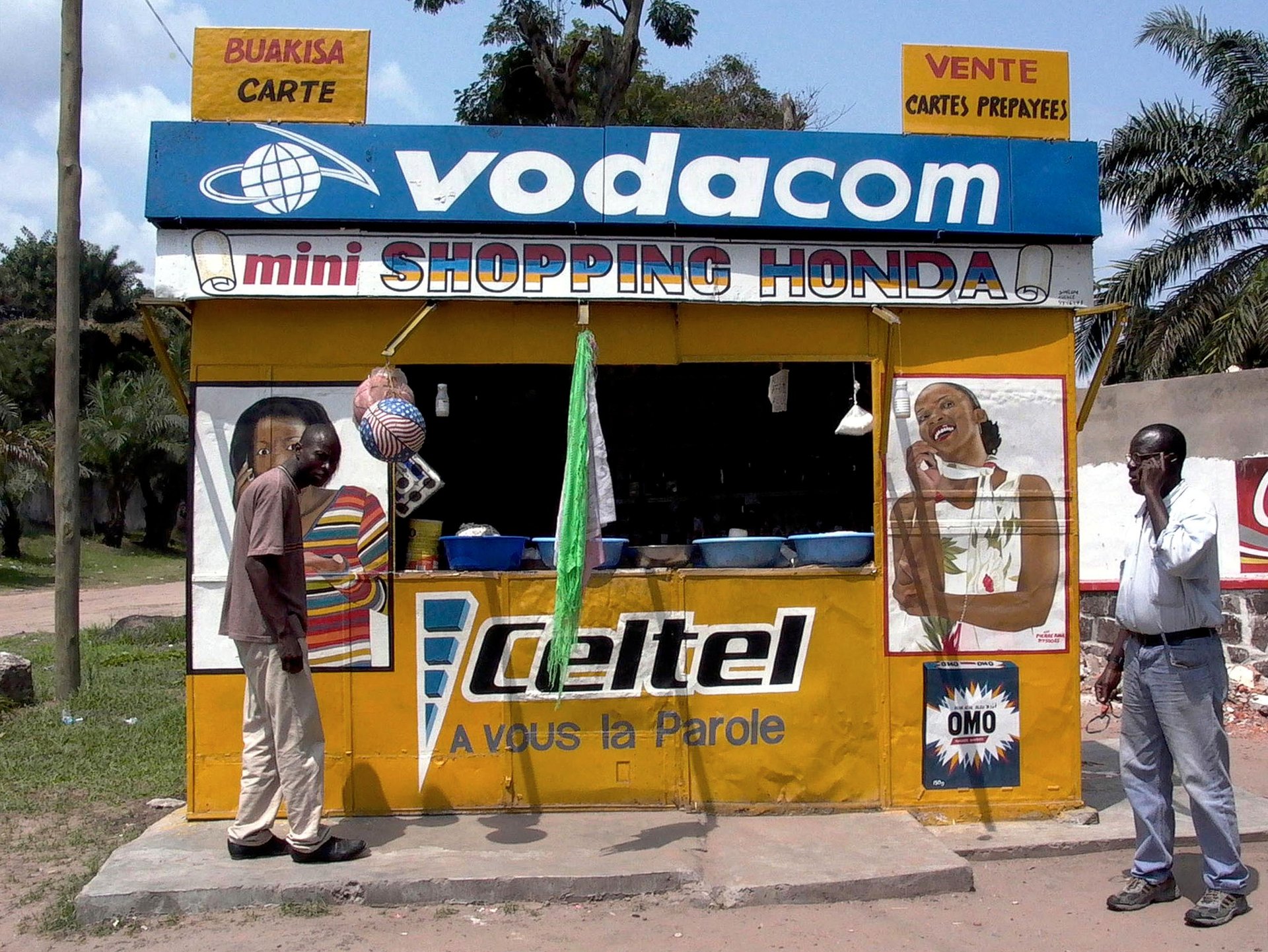

Hi Quartz Africa readers,
There’s been some debate this week about how the media covers Ukraine versus ostensibly similar crises in Africa and the Middle East, and how the global outpouring of compassion and empathy for Ukrainians contrasts with Europe’s treatment of some migrants.
It’s easy to see why these comparisons are drawn, and the conflict has exposed some remarkably backward sentiments. “This isn’t a place, with all due respect, like Iraq or Afghanistan, that has seen conflict raging for decades…this is a relatively civilized, relatively European city,” one CBS News correspondent said on air. “It’s very emotional for me because I see European people with blonde hair, blue eyes being killed,” Ukraine’s former deputy general prosecutor said. “They could be the European family living next door,” mused an Al Jazeera English news anchor. Meanwhile, there are people of color, including many Africans, alleging racist treatment as they also attempt to leave Ukraine.
Those highlighting racial disparities are not calling for the world to ignore the Ukraine crisis, or to shut its doors to Ukrainian refugees. They are simply advocating for a world where humanity, dignity, and empathy are also extended to refugees from other war-torn places such as Somalia, Eritrea, Syria, South Sudan, Venezuela, or Afghanistan. —Ciku Kimeria, Africa editor
Opportunity alert
🔎 Quartz Africa is hiring! We are seeking a business journalist in East Africa, preferably Nairobi, to shepherd our coverage of tech, finance, and innovation on the continent. All interested applicants should apply here.
Finding Creatives in Africa Cheat Sheet
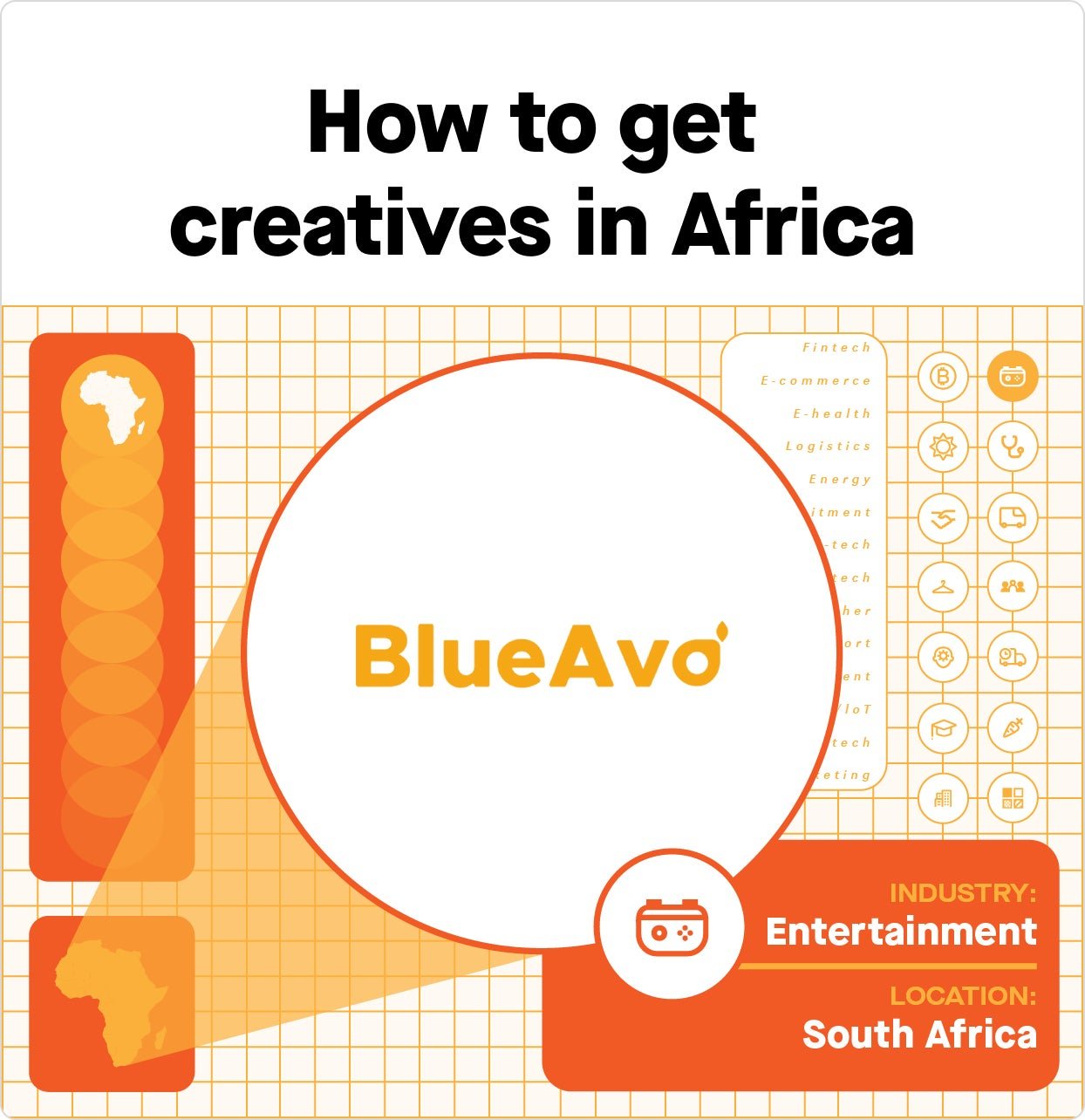
💡 The opportunity: Local and international businesses are often looking for talent (for example, to produce a video or execute a graphic-design project), but there are plenty of African creatives awaiting discovery. Being a connector has potential.
🤔 The challenge: Africa’s creative talent pool is fragmented across different countries.
🌍 The road map: Centralized databases of creatives, plus technology that pairs them up with businesses in need of talent, could be the most efficient way to secure services upon request.
💰 The stakeholders: Africa-focused VCs like Kepple Africa Ventures, Musha Ventures, Ingressive Capital, Lateral Capital, and Chandaria Capital are investing in Africa’s creative industries.
👆 That’s a preview of our latest Quartz Africa Member Brief. To keep receiving it, sign up for a free trial of Quartz Africa membership.
Stories this week
Africans are stranded in Ukraine. Carlos Mureithi writes about reports of racist treatment as Africans attempt to escape the Russia-Ukraine war, including being blocked from boarding trains and prevented from crossing borders.
Nigeria starts the process of bringing citizens home from Ukraine. Those who made it through to Poland, Romania, and Hungary have reportedly received help from Nigeria’s ministry of foreign affairs and could return home soon, Alexander Onukwue writes.
A Ugandan airport isn’t under threat from China. Last year, local and international media reported that Uganda’s Entebbe airport was at risk of being taken over by China. Carlos Mureithi reports on the continent’s unfounded perennial fears of China seizing infrastructure.
Nigeria captures foreign tech firms in its tax net. Adegoke Oyeniyi details recent price hikes by Google, Meta, and Zoom based on a new Nigerian law requiring non-resident technology companies to act as Value Added Tax collectors for digital goods and services.
The DRC gets rid of a “stolen phone tax.” Since its introduction in 2020, the DRC’s “RAM” tax has been a source of frustration to many, with the main complaint being that it doesn’t solve the problem it was created to solve, and is a heavy financial burden. Akilimali Chomachoma reports the good news that the tax will cease to exist this month.
MTN’s new look targets Gen Z. Africa’s largest telecom company posted strong growth last year in Nigeria on mobile money and other services. Alexander Onukwue explains how, in line with its logo change, the company’s new era is about wooing young customers.
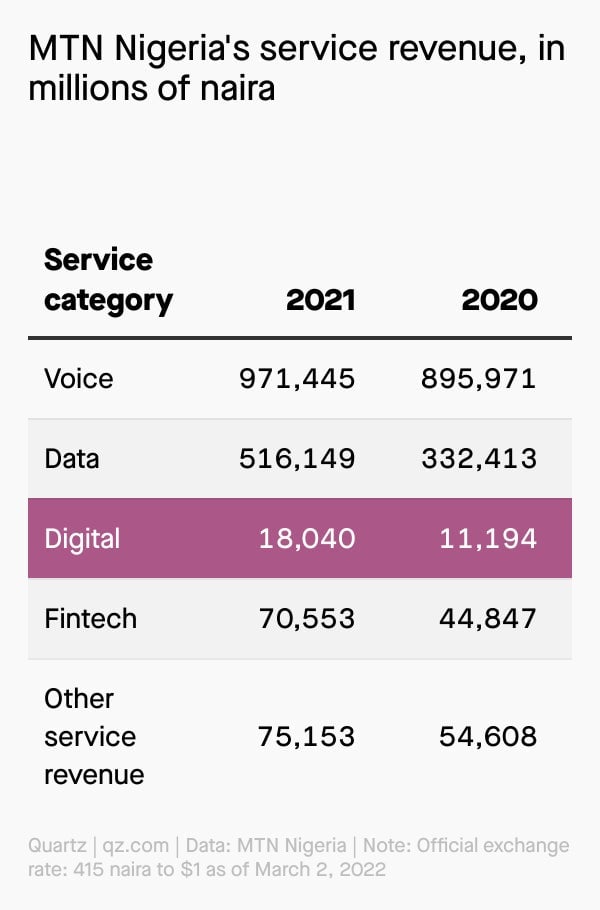
Charting Jumia’s expansion into advertising and logistics
In its early years a decade ago, Jumia focused on selling directly to users from its warehouses, but the challenges of e-commerce in Africa led it to develop internal payments and logistics arms. Soon enough, Jumia began offering these services to online sellers in its marketplace and other companies, in addition to selling advertising space.
Alexander Onukwue looked through Jumia’s performance in 2021 and reports that, for the first time, the “Amazon of Africa” recorded revenue from advertising and logistics among its monetization streams, a nod to the company’s diversification and push towards profitability.
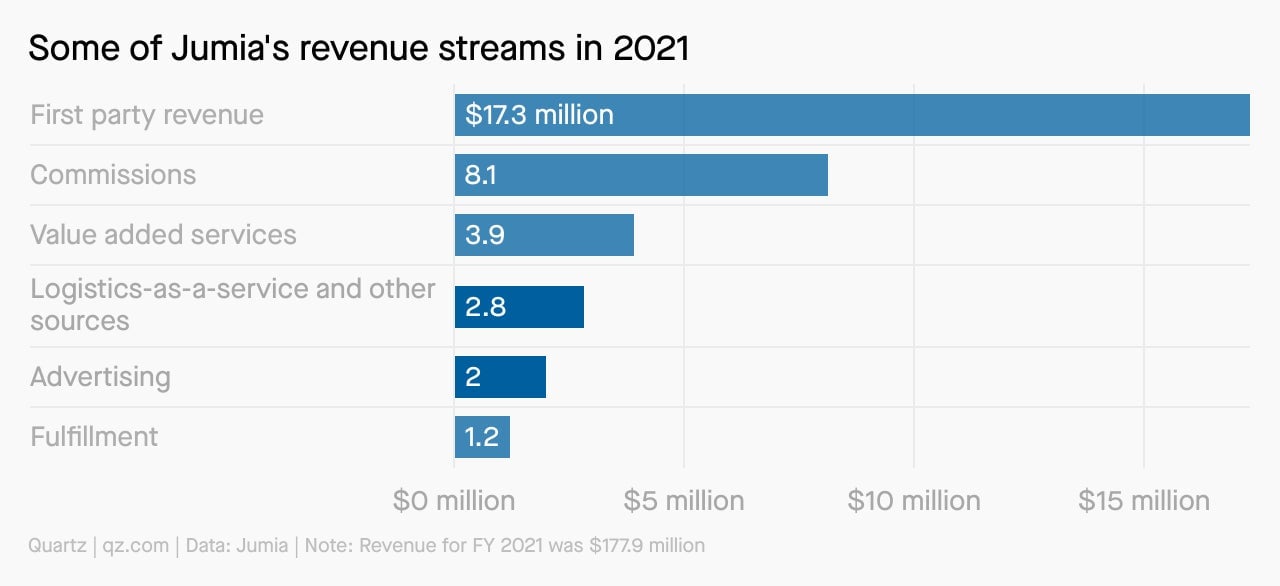
Dealmaker
M-Kopa raised $75 million in an equity round it describes as a growth fund. The Kenya-based company is known for providing pay-as-you-use access to electronics like solar-powered refrigerators and smartphones for low-income consumers, which now number 2 million in four countries. Next on its agenda: Launch in two new countries between now and 2023.
Moroccan e-commerce company Chari will buy Axa Credit for $22 million. French firm Axa Group was going to pull its credit business from Morocco but instead sold it to Chari, according to Techcrunch. By buying Axa Credit, the startup gains a license that fortifies the lending component of its business.
Sudo Africa, a Nigerian startup that helps companies issue virtual and physical cards, raised $3.7 million in a pre-seed round led by Global Founders Capital, with other investors and some African fintech entrepreneurs participating.
Quartz Gems
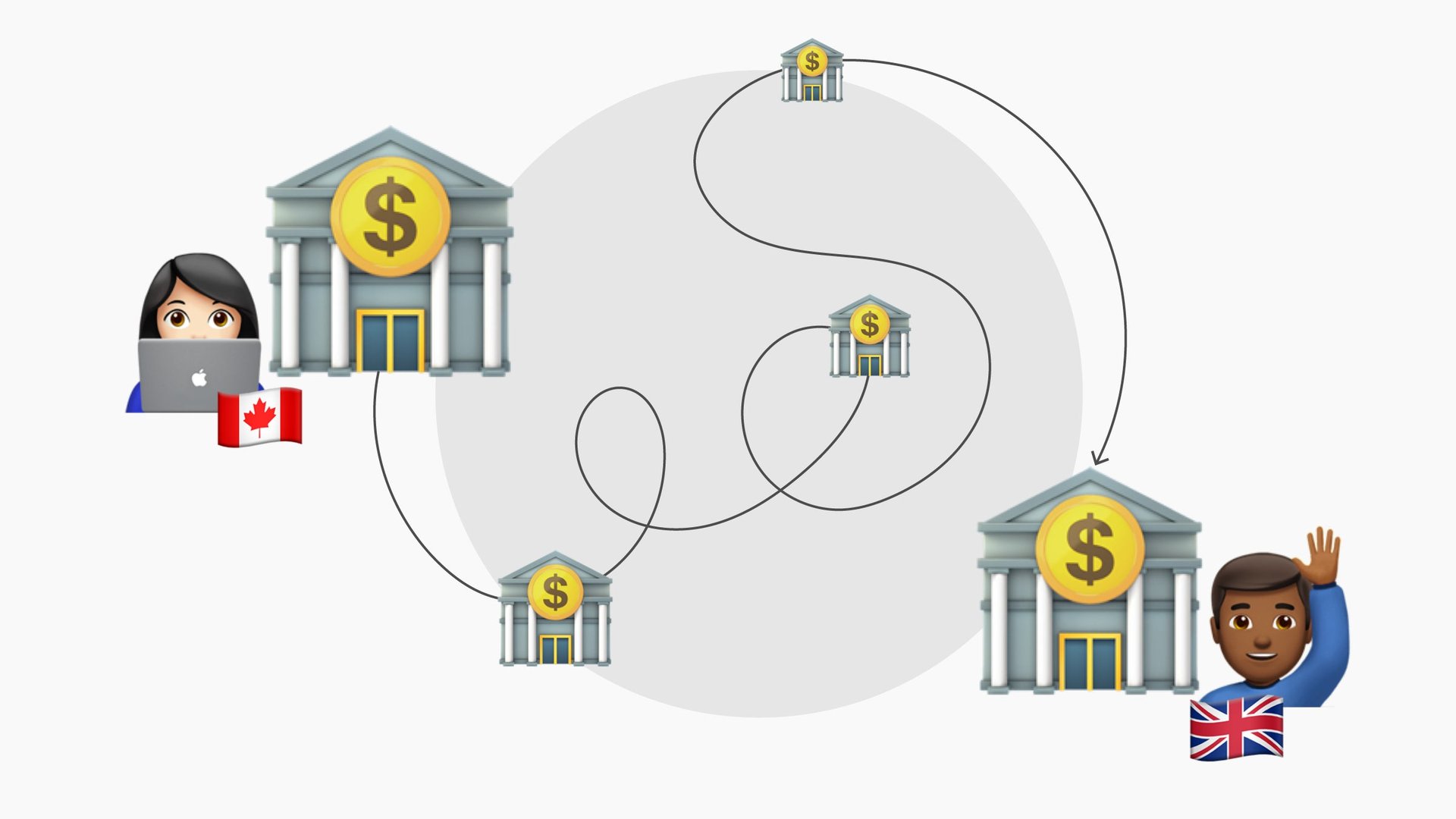
Sanctions against Russia include a proposal to limit the country’s access to SWIFT, a platform for facilitating money transfers that is integrated into banking systems worldwide. SWIFT, which stands for the Society for Worldwide Interbank Financial Telecommunication, is a messaging system that allows banks to securely and quickly communicate about cross-border payments.
Say Amanda in Canada wants to send money to Marc in the UK…
1️⃣ She tells her bank the amount to transfer, Marc’s account number, and the SWIFT code of Marc’s bank.
2️⃣ If the banks have a relationship, the message goes from one to the other. If the banks don’t have a relationship, the message goes through intermediary banks.
3️⃣ The banks settle the payment. Marc receives his transfer.
Limiting Russia’s access to SWIFT is one part of disconnecting it from the international financial system, but banks have other options.

Everyone loves a fish stick. For years, Kenya has been trying to promote its local fishing industry, in part by introducing more processed foods. Among them: the humble fish stick, a frozen treat with origins in 1950s America, and a longtime savior in the seafood world. 🎧 Learn more with this week’s episode of the Quartz Obsession podcast.
Listen on: Apple Podcasts | Spotify | Google | Stitcher
Sponsored by Alumni Ventures
Other things we liked
Uganda welcomes young mothers back to school. For Reuters, Elias Biryabarema writes about the enactment of a new Ugandan government policy encouraging girls who have given birth to return to class.
Access denied to African startups’ accounts. For TechCabal, Damilare Dosunmu looks at why Mercury, a US-based digital bank, restricted accounts for 20+ African startups.
Amazon is up against indigenous South Africans. For the New York Times, John Eligon explores the tension among indigenous people in South Africa around whether to allow Amazon to build its 37-acre Africa headquarters on sacred land.
Diamond wealth divides Zimbabwe. For African Arguments, Farai Shawn Mataishe reports on the proceeds of diamond mining not reaching a wide population of Zimbabweans, especially people who have ancestral claims to the mining lands.
ICYMI
Sign up for an AI program. Codecademy and Black & Brilliant are seeking applications for their Africa-based Applied Artificial Intelligence accelerator and mentorship program.
Risk management for private investors. Invest Africa and Control Risks will examine key principles of environmental, social, and governance risk management. (March 30)
🎵 This brief was produced while listening to “Suco” by Ingomblock (Angola).
Our best wishes for a productive and ideas-filled week ahead. Please send any news, comments, suggestions, ideas, new revenue streams, and SWIFT messages to [email protected]. You can follow us on Twitter at @qzafrica for updates throughout the day.
If you received this email from a friend or colleague, you can sign up here to receive the Quartz Africa Weekly Brief in your inbox every week. You can also follow Quartz Africa on Facebook.